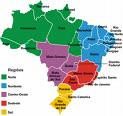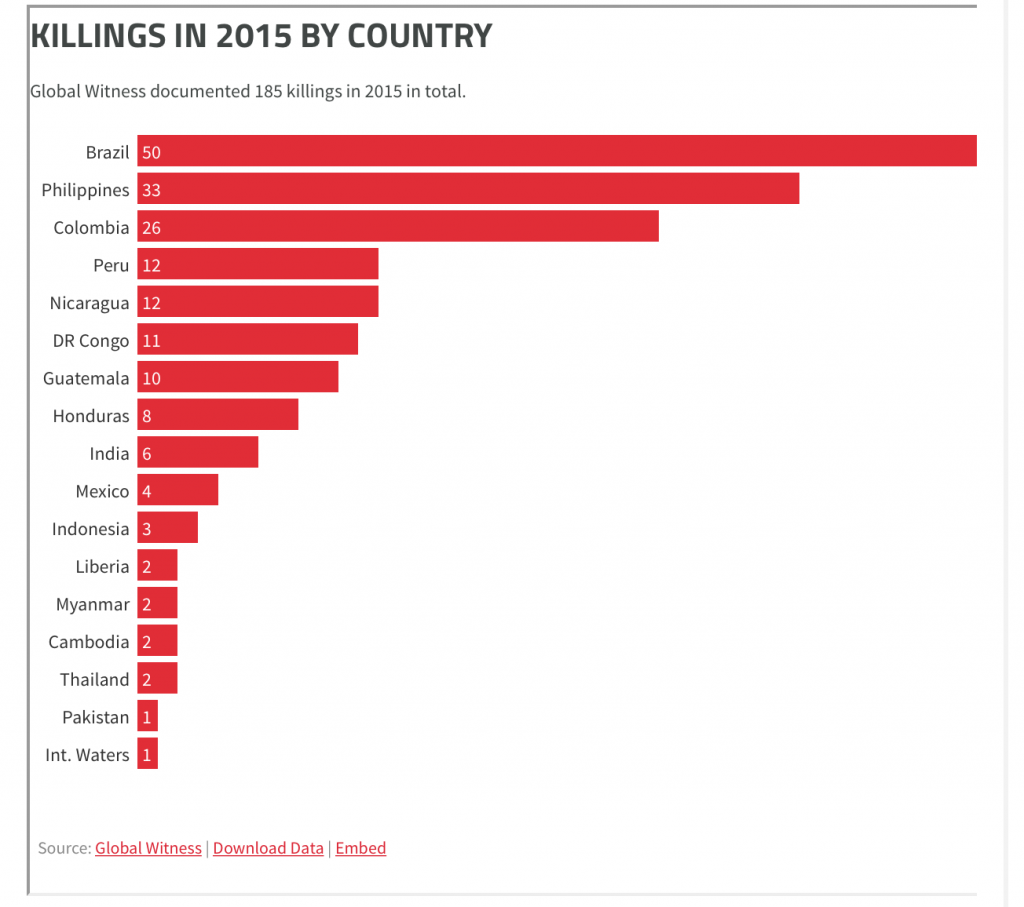Brazil: Most Dangerous Country for Environmental Activists in 2015. Agribusiness, Mining Projects in the Amazon

Last year was the worst year on record for the murder of environmental activists, and more killings took place in Brazil than in any other country in the world.
Activists across the globe are facing increasing violence as they stand up for the planet. An environmental defender was assassinated almost every other day in 2015, according to a new report from Global Witness.
Of those killed, a severely disproportionate number – 40 percent – were Indigenous People. And 50 of the 185 murders worldwide took place in Brazil.
Global Witness found that fights against mining projects, agribusiness expansion and the construction of new hydroelectric plants were the main causes of the killings. Not coincidentally, these are the three priority areas for the supposed development agenda of the Brazilian government.
Brazil is facing an escalation of violence in remote areas, and murderers often face no consequences. Almost all of the murders of environmental defenders in Brazil took place in the Amazon, where criminal activity is common. The lack of governance in the region victimizes the forest and its people.
Only days ago, a Greenpeace Brazil team conducted a flight over the Sawre Maybu Indigenous Land in the heart of the Amazon – home of the Munduruku Indigenous People – and found evidence of illegal logging and mining activities.
Just last week, there were clashes and deaths in three Brazilian states. In the state of Pará, Sergeant João Luiz de Maria Pereira was killed during an operation against illegal deforestation in the Jamanxim National Forest of Novo Progresso.
In Mato Grosso do Sul, a Guarani-Kaiowá Indigenous Person was shot dead in a 70 farmer attack on a farm neighbouring the Tey’i Kue Indigenous Land. Six other Indigenous People were hospitalized with gunshot wounds, including a 12-year-old child.
And in Maranhão, the Ka’apor people of the Alto Turiaçú Indigenous Land live under constant threat of attack. To prevent the invasion of their land and forest destruction, they have begun monitoring and patrolling their territory, but this has upset farmers and loggers seeking to exploit it. According to organisations that support the Ka’apor people, farmers and loggers are planning to attack villages. Yet the government agencies responsible for the safety of Indigenous People and their territory are not taking action.
If the Brazilian government doesn’t immediately implement measures to address this growing violence – if it continues weakening the rights of Indigenous and traditional Peoples in the name of economic interests – there is no doubt that there will be more victims.
Environmental defenders are putting their lives at risk to protect their lands, forests and rivers against destructive industries. We must stand in solidarity with them – no matter where we are in the world.
You can start now. Stand with the Munduruku Indigenous People of Brazil, who are fighting to keep their traditional territory in the heart of the Amazon from being devastated by a massive dam.
Márcio Astrini is the public policy coordinator for Greenpeace Brazil.
Another version of this blog was posted by Greenpeace Brazil.


